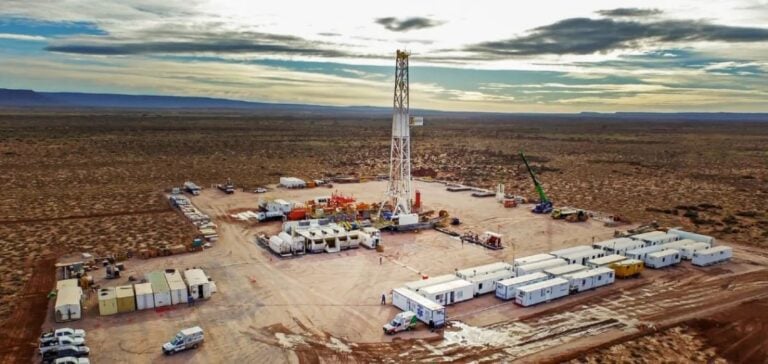Argentina is set to launch an auction to expand natural gas transportation capacity from the Vaca Muerta shale field. This initiative, announced by Energy Secretary María Tettamanti on December 2, seeks to reduce the country’s reliance on costly energy imports, particularly during winter peaks.
The project, proposed by Transportadora de Gas del Sur (TGS), Argentina’s leading pipeline operator, involves a $700 million investment. Its goal is to add 14 million cubic meters per day (m³/d) of capacity to the Perito Moreno pipeline, which connects Vaca Muerta to Buenos Aires. Currently, the pipeline transports 21 million m³/d.
Tettamanti confirmed during the Energy Day conference in Buenos Aires that the auction will be organized swiftly following the issuance of a government decree authorizing the project. According to Argentine law, any private initiative of this magnitude must go through a competitive bidding process, with TGS having the right to outbid any competitor.
Reducing Energy Imports
With average natural gas demand of 140 million m³/d and peaks exceeding 180 million m³/d in winter, Argentina must fill the gap with imports, mainly liquefied natural gas (LNG) and liquid fuels like diesel. These imports, primarily used by power plants, represent a significant financial burden.
Oscar Sardi, CEO of TGS, specified that increasing the pipeline’s capacity could save the country $700 million in winter energy imports. Approximately 70% of these savings would come from reduced LNG imports, while the remaining 30% would be in liquid fuels.
A Tight Timeline
Once the project is awarded, construction is expected to take 20 to 22 months. “We must move quickly so that Vaca Muerta producers can boost output to meet domestic demand,” Sardi said.
In parallel, TGS is planning a second expansion phase without requiring a new auction. This phase, requiring an additional $200 million investment, will increase the current system’s capacity by another 14 million m³/d.
Long-Term Export Potential
With reserves estimated at 300 trillion cubic feet (Tcf), Vaca Muerta holds far more resources than the country’s annual demand of 2 Tcf. This vast potential is driving plans for gas exports, particularly as LNG, starting as early as 2027. These initiatives aim to position Argentina as a key player in the global energy market.





















